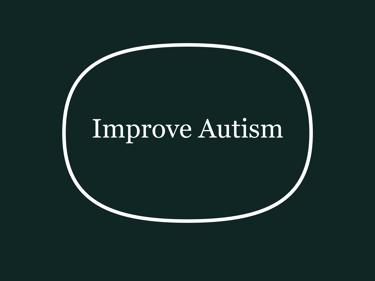Facal matter transplant
Autism research
Microbiota Transfer Therapy alters gut ecosystem and improves gastrointestinal and autism symptoms: an open-label study
Authors:
Kang, D.W., Adams, J.B., Gregory, A.C., Borody, T., Chittick, L., Fasano, A., Khoruts, A., Geis, E., Maldonado, J., McDonough-Means, S. and Pollard, E.L.
Research study
Year
Type
Study size
Abstract
LINK/DOI
Background: Autism spectrum disorders (ASD) are complex neurobiological disorders that impair social interactions and communication and lead to restricted, repetitive, and stereotyped patterns of behavior, interests, and activities. The causes of these disorders remain poorly understood, but gut microbiota, the 1013 bacteria in the human intestines, have been implicated because children with ASD often suffer gastrointestinal (GI) problems that correlate with ASD severity. Several previous studies have reported abnormal gut bacteria in children with ASD. The gut microbiome-ASD connection has been tested in a mouse model of ASD, where the microbiome was mechanistically linked to abnormal metabolites and behavior. Similarly, a study of children with ASD found that oral non-absorbable antibiotic treatment improved GI and ASD symptoms, albeit temporarily. Here, a small open-label clinical trial evaluated the impact of Microbiota Transfer Therapy (MTT) on gut microbiota composition and GI and ASD symptoms of 18 ASD-diagnosed children.
Results: MTT involved a 2-week antibiotic treatment, a bowel cleanse, and then an extended fecal microbiota transplant (FMT) using a high initial dose followed by daily and lower maintenance doses for 7-8 weeks. The Gastrointestinal Symptom Rating Scale revealed an approximately 80% reduction of GI symptoms at the end of treatment, including significant improvements in symptoms of constipation, diarrhea, indigestion, and abdominal pain. Improvements persisted 8 weeks after treatment. Similarly, clinical assessments showed that behavioral ASD symptoms improved significantly and remained improved 8 weeks after treatment ended. Bacterial and phagedeep sequencing analyses revealed successful partial engraftment of donor microbiota and beneficial changes in the gut environment. Specifically, overall bacterial diversity and the abundance of Bifidobacterium, Prevotella, and Desulfovibrio among other taxa increased following MTT, and these changes persisted after treatment stopped (followed for 8 weeks).
Conclusions: This exploratory, extended-duration treatment protocol thus appears to be a promising approach to alter the gut microbiome and virome and improve GI and behavioral symptoms of ASD. Improvements in GI symptoms, ASD symptoms, and the microbiome all persisted for at least 8 weeks after treatment ended, suggesting a long-term impact.
18
Open-label study
2017
doi: 10.1186/s40168-016-0225-7


Long-term benefit of Microbiota Transfer Therapy on autism symptoms and gut microbiota
Authors:
Kang, D.W., Adams, J.B., Coleman, D.M., Pollard, E.L., Maldonado, J., McDonough-Means, S., Caporaso, J.G. and Krajmalnik-Brown, R.
Research study
Year
Type
Study size
Abstract
LINK/DOI
Many studies have reported abnormal gut microbiota in individuals with Autism Spectrum Disorders (ASD), suggesting a link between gut microbiome and autism-like behaviors. Modifying the gut microbiome is a potential route to improve gastrointestinal (GI) and behavioral symptoms in children with ASD, and fecal microbiota transplant could transform the dysbiotic gut microbiome toward a healthy one by delivering a large number of commensal microbes from a healthy donor. We previously performed an open-label trial of Microbiota Transfer Therapy (MTT) that combined antibiotics, a bowel cleanse, a stomach-acid suppressant, and fecal microbiota transplant, and observed significant improvements in GI symptoms, autism-related symptoms, and gut microbiota. Here, we report on a follow-up with the same 18 participants two years after treatment was completed. Notably, most improvements in GI symptoms were maintained, and autism-related symptoms improved even more after the end of treatment. Important changes in gut microbiota at the end of treatment remained at follow-up, including significant increases in bacterial diversity and relative abundances of Bifidobacteria and Prevotella. Our observations demonstrate the long-term safety and efficacy of MTT as a potential therapy to treat children with ASD who have GI problems, and warrant a double-blind, placebo-controlled trial in the future.
18
Open-label study follow up
2019
doi: 10.1038/s41598-019-42183-0
Fecal Microbiota Transplantation Relieves Gastrointestinal and Autism Symptoms by Improving the Gut Microbiota in an Open-Label Study
Authors:
Li, N., Chen, H., Cheng, Y., Xu, F., Ruan, G., Ying, S., Tang, W., Chen, L., Chen, M., Lv, L. and Ping, Y.
Research study
Year
Type
Study size
Abstract
LINK/DOI
Autism spectrum disorder (ASD) is a severe brain development disorder that is characterized by deficits in social communication and restricted, repetitive and stereotyped behaviors. Accumulating evidence has suggested that gut microbiota disorders play important roles in gastrointestinal symptoms and neurodevelopmental dysfunction in ASD patients. Manipulation of the gut microbiota by fecal microbiota transplantation (FMT) was recently shown to be a promising therapy for the treatment of various diseases. Here, we performed a clinical trial to evaluate the effect of FMT on gastrointestinal (GI) and ASD symptoms and gut microbiota alterations in children with ASD. We found that there was a large difference in baseline characteristics of behavior, GI symptoms, and gut microbiota between children with ASD and typically developing (TD) control children. FMT could improve GI symptoms and ASD symptoms without inducing any severe complications. Similarly, FMT significantly changed the serum levels of neurotransmitters. We further observed that FMT could promote the colonization of donor microbes and shift the bacterial community of children with ASD toward that of TD controls. The abundance of Eubacterium coprostanoligenes pre-FMT was positively correlated with high GSRS scores, whereas a decrease in Eubacterium coprostanoligenes abundance induced by FMT was associated with the FMT response. Our data suggest that FMT might be a promising therapeutic strategy to improve the GI and behavioral symptoms of patients with ASD, possibly due to its ability to alter gut microbiota and highlight a specific microbiota intervention that targets Eubacterium coprostanoligenes that can enhance the FMT response.
40
Open-label study
2021
doi: 10.3389/fcimb.2021.759435
Effects of Washed Fecal Bacteria Transplantation in Sleep Quality, Stool Features and Autism Symptomatology: a Chinese Preliminary Observational Study
Authors:
Zhang, Y., Zhang, J., Pan, Z. and He, X.
Research study
Year
Type
Study size
Abstract
LINK/DOI
Purpose: Autism spectrum disorder is a highly complex neurological and psychosocial disorder characterized by social dysfunction, severe reduction in speech, and a single stereotyped behavior. The treatment methods are currently limited, and children with autism generally suffer from constipation and sleep disorders. It is urgent to find an alternative psychotropic drug, given the drug dependence and adverse reactions that may occur with long-term medication.
Patients and methods: This retrospective study included 49 children with autism at the first affiliated Hospital of Guangdong Pharmaceutical University, who received washed fecal microbiota transplantation (WMT) treatment between June 2019 and July 2021 and compared the sleep disorder scores between the constipation group, control group and blank group.
Results: Second WMT could significantly improve the sleep disorder scores in the constipation group (p=0.026) and the decrease in sleep disturbance scale for children (SDSC) score was synchronized with the increase in Bristol stool form scale (BSFS) score. However, there was no significant difference between patients without constipation (p=0.54), and the behavior of autism improved in both groups.
Conclusion: WMT could relieve constipation and improve sleep disorders in children with autism, with no deterioration in stool morphology and sleep disorders in other children. Moreover, there were no obvious serious adverse clinical events after WMT.
49
Retrospective study
2022
doi: 10.2147/NDT.S355233
Multi-level analysis of the gut-brain axis shows autism spectrum disorder-associated molecular and microbial profiles
Authors:
Morton, J.T., Jin, D.M., Mills, R.H., Shao, Y., Rahman, G., McDonald, D., Zhu, Q., Balaban, M., Jiang, Y., Cantrell, K. and Gonzalez, A.
Research study
Year
Type
Study size
Abstract
LINK/DOI
Autism spectrum disorder (ASD) is a neurodevelopmental disorder characterized by heterogeneous cognitive, behavioral and communication impairments. Disruption of the gut-brain axis (GBA) has been implicated in ASD although with limited reproducibility across studies. In this study, we developed a Bayesian differential ranking algorithm to identify ASD-associated molecular and taxa profiles across 10 cross-sectional microbiome datasets and 15 other datasets, including dietary patterns, metabolomics, cytokine profiles and human brain gene expression profiles. We found a functional architecture along the GBA that correlates with heterogeneity of ASD phenotypes, and it is characterized by ASD-associated amino acid, carbohydrate and lipid profiles predominantly encoded by microbial species in the genera Prevotella, Bifidobacterium, Desulfovibrio and Bacteroides and correlates with brain gene expression changes, restrictive dietary patterns and pro-inflammatory cytokine profiles. The functional architecture revealed in age-matched and sex-matched cohorts is not present in sibling-matched cohorts. We also show a strong association between temporal changes in microbiome composition and ASD phenotypes. In summary, we propose a framework to leverage multi-omic datasets from well-defined cohorts and investigate how the GBA influences ASD.
1200
(combined)
Article review
2022
doi: 10.1038/s41593-023-01361-0
Beneficial Effects of Repeated Washed Microbiota Transplantation in Children With Autism
Authors:
Pan, Z.Y., Zhong, H.J., Huang, D.N., Wu, L.H. and He, X.X.
Research study
Year
Type
Study size
Abstract
LINK/DOI
Objective: While fecal microbiota transplantation is demonstrated to improve symptoms of autism spectrum disorder (ASD), it remains unclear whether additional treatment courses yield better results. This study sought to evaluate the efficacy of repeated washed microbiota transplantation (WMT) in children with ASD.
Methods: Retrospective data from children who were serially treated with WMT, including ASD symptoms, sleep disorders, gastrointestinal (GI) symptoms, and white blood cell (WBC) and globulin levels were obtained. The effect of WMT on children with ASD and whether additional WMT courses led to a further improvement in symptoms were assessed.
Results: Aberrant Behavior Checklist (ABC), Childhood Autism Rating Scale, and Sleep Disturbance Scale for Children (SDSC) scores, the proportion of children with constipation and abnormal fecal forms, and WBC and globulin levels were all significantly lower in ASD children after WMT. More WMT treatment courses led to significantly lower scores on the ABC and SDSC.
Conclusion: WMT significantly improved ASD and GI symptoms and sleep disorders in children with ASD, and reduced systemic inflammation. Additional WMT courses led to more obvious improvements in ASD symptoms within three treatment courses.
42
Retrospective study
2022
doi: 10.3389/fped.2022.928785
First Application of Fecal Microbiota Transplantation in Adult Asperger Syndrome With Digestive Symptoms—A Case Report
Authors:
Huang, H.L., Xu, H.M., Liu, Y.D., Shou, D.W., Chen, H.T., Nie, Y.Q., Li, Y.Q. and Zhou, Y.J
Research study
Year
Type
Study size
Abstract
LINK/DOI
Asperger syndrome (AS) is a chronic neurodevelopmental disorder. Although all of the clinically diagnosed cases display normal intelligence and speech functions, barriers in social interaction and communication seriously affect mental health and psychological function. In addition to traditional psychological/behavioral training and symptomatic medication, in-depth studies of intestinal microbiota and mental health have indicated that probiotics (e.g., Lactobacillus rhamnosus) can effectively reduce the occurrence of AS. Fecal microbiota transplantation (FMT) is a type of biological therapy that involves the transplant of intestinal microbiota from healthy donors into the patient's gastrointestinal tract to improve the gut microenvironment. In this case report, we describe the first case of adult AS treated with FMT. The patient suffered from diarrhea-predominant irritable bowel syndrome for 6 years with symptoms of diarrhea and abdominal pain. After three rounds of FMT, the diarrhea and abdominal pain were significantly improved. Moreover, the symptoms of AS were also significantly ameliorated. We found that FMT changed the structure of the intestinal microbiota as well as the patient's serum metabolites, and these changes were consistent with the patient's symptoms. The metabolites may affect signaling pathways, as revealed by Kyoto Encyclopedia of Genes and Genomes enrichment analysis. The changes in microbial metabolites following FMT may affect other regions (e.g., the nervous system) via the circulatory system, such that the bacteria-gut-blood-brain axis may be the means through which FMT mitigates AS.
1
Case Report
2022
doi: 10.3389/fpsyt.2022.695481


